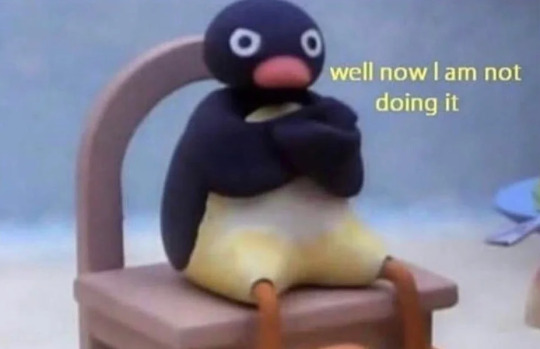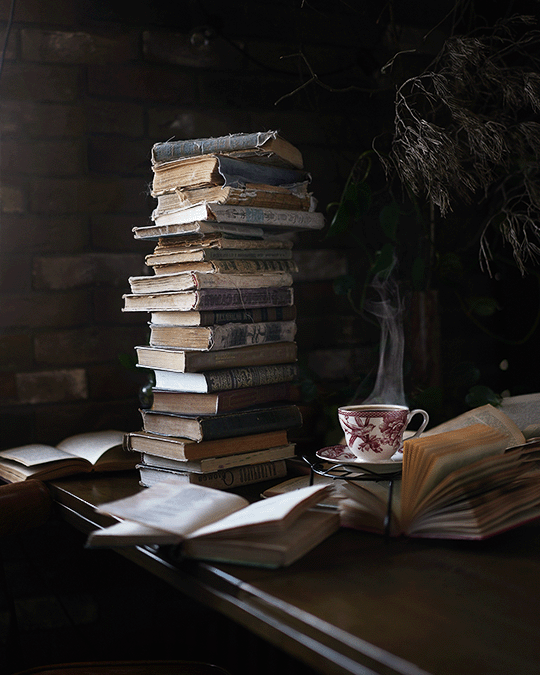collections of an artist writer I share anything that catches my eye. I like writing, reading, journaling, and appreciate art, horses, authors, and wit. Will occasionally rant or post a WIP. Enjoys networking, stationary, bookcases, writing, painting, blogging; but most of all, enjoys getting cozy.
Don't wanna be here? Send us removal request.
Text
Becoming a writer is great because now you have a hobby that haunts you whenever you don’t have time to do it
67K notes
·
View notes
Text

This is the AoE you see around customers when working retail
4K notes
·
View notes
Text
For the last goddamn time...
"Kill your darlings" means "if something is holding you back, get rid of it, even if it sounds pretty."
That's it! That's all it means! It means if you're stuck and stalled out on your story and you could fix the whole block by removing something but you're avoiding removing that thing because it's good, you remove that thing. That's the darling.
It does NOT mean
That you have to get rid of your self-indulgent writing
That you should delete something just because you like it (?wtf?)
That you need to kill off characters (??? what)
That you have to pare your story down to the absolute bare bones
That you have to delete anything whatsoever if you don't want to
The POINT is that you STOP FEELING GUILTY for throwing out good writing that isn't SERVING THE STORY.
The POINT is that you don't get so HUNG UP on the details that you lose sight of the BIG PICTURE.
Good grief....
35K notes
·
View notes
Text
#writing#morning thoughts#writer's life#writers#writer#self publishing#book publishing#publishing#platform
0 notes
Text
how to stay motivated as a writer
Reread your old writing. Especially those scenes you're proud of
Write something silly. Doesn’t need to be logical, or included in your story. Write something dumb
Compare your old writing to your new writing. Seeing how much you've improved is a great way to get motivated
Explore different storylines. Those type of storylines that would never make it into your novel, but that you'd still like to explore
Choose one of your least favorite scenes, or a really old one, and rewrite it
Read old comments from people praising your work
Create a playlist of music that reminds you of your wip
Don't push yourself to get back to what made you stop writing in the first place. Write something else
Write what you want to write, no matter how cliché it might be perceived as. It doesn't matter. If you want to write it, write it.
Take a break and focus on another hobby of yours. Consume other pieces of media, or take a walk to clear your head
You don't have to write in chronological order from the very beginning if it isn't working for you! Sometimes a scene you aren't interested in writing can become interesting after you've explored other scenes leading up to it/happening after it
Read one star reviews of ''awful'' books. As much as I hate to say it, you'll unlock a newly appreciated view on your own writing
create a new storyline, or a new character. Anything that helps bring something fresh into your story. Could even be a completely new wip
Not writing everyday doesn't make you a bad writer. If you feel you need a break, take one.
Remind yourself to have fun. Start writing and don't focus all your attention on following every rule created for writing. You can get into the nitty-gritty when you’ve familiarized yourself with writing as an art. Or don’t. It's fiction. You make your own rules.
Go to sleep, or take a nap. Sleep deprivation and writing does not go hand in hand (trust me)
Listen to music that reminds you of your characters/wip
Remember why you started. Know that you deserve to tell the story you want to tell regardless of the skill you possess
4K notes
·
View notes
Text
I'm not big on extraneous and irrelevant information for story-writing, but the list is too comprehensive not to share
`✮´
Resources For Creating Characters
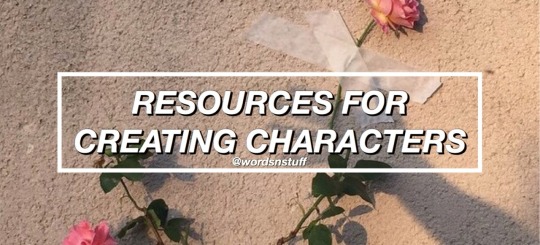
Physical Appearance
Face Shapes
Hair Types
Hair Colors
Hair Styles
Facial Hair
Eyebrows
Eye Shapes
Eye Colors
Lip Shapes
Skin Colors
Skin Types
Height Comparison
Types Of Piercings
Body Types
More Specific Words For Body Types
Nose Shapes
Voices
Speech Patterns
Speech Impediments
Distinguishable Facial Features
Fashion Styles
Personality
Hobbies
Archetypes
Secrets
Quirks
Mannerisms
Bad Habits
Fears
Religions
Mental Disorders
Pet Peeves
Strengths
Weaknesses
Flaws
Talents & Skills
Character Motivations
Miscellaneous
Character Building Chart
Character Name Generator
Basic Character Appearance Generator
Character Detail Generators
Backstory & Origin Generators
Outfit, Costume, Clothing, & Wardrobe Generators
Basic Character Premise Generator
Character Cast Generator
Alternative Character Cast Generator
Zombie Generator
Vampire Generator
Teen Generator
Pirate Generator
Music Band Generator
Murder Mystery Victim Generator
Merperson Generator
Fairy Generator
Fantasy & Sci-Fi Race Generator
Elemental Person Generator
Deity Generator
Villain Generator
Other Resources From Wordsnstuff
Resources For Describing Physical Things
Resources For Describing Characters
Resources For Describing Emotions
Resources For Writing Sketchy Topics
Useful Writing Resources
Useful Writing Resources II
Support Wordsnstuff!
Request A Writing Help Post/Themed Playlist/Writing Tips!
Send Me Poetry To Feature On Our Instagram!
Receive Updates & Participate In Polls On Our Twitter!
Like us and share on Facebook!
Read More On Our Masterlist & See our Frequently Asked Questions!
Tag What You Want Me To See With #wordsnstuff!
Participate in monthly writing challenges!
26K notes
·
View notes
Text
unique writing asks🖋️
What themes would you like to write about that you feel don’t get explored very often?
What are some common elements of stories you are tired of seeing? What would you avoid writing about?
What loves do you tend to write about? Agape (unconditional, spiritual love), Eros (romantic, passionate love), Philia (affectionate, platonic love), Philautia (self-love), Storge (familial love), Pragma (enduring love like between long-married couples), Ludus (playful love, infatuation you feel during the “honeymoon period”), and Mania (obsessive love that leads to madness and jealousy)
In your works, is blood thicker than water or is the blood of the covenant thicker than the water of the womb? (Are familial ties or friendship ties more important?)
Would you rather write a happy ending that soothes the soul or a tragic ending that hurts the heart?
What point of view do you tend to write in? Do all of your pieces use the same POV? Do you have strong opinions on the POV used in novels?
Favorite description in your wip? (If asked more than once, respond with a new piece each time)
Favorite dialogue in your wip? (If asked more than once, respond with a new piece each time)
What scene was the hardest to write for you and why?
What scene was the most fun to write for you and why?
Set the scene for us. What are your settings like and do you have any pictures saved that represent them? Do your characters travel and see more than one? What are their names?
What is the fashion like in your wip? Do you have any pictures saved of outfits your characters would wear?
What traits do you share with your original characters or what traits do you wish you shared with them?
If you’ve written more than one story, what traits do your protagonists tend to share?
Why physical quirks do your characters tend to have? Eyebrow raising, picking nails, biting lips, pacing, crossing arms, etc.
What motives do you give your original characters? What drives them? How much tragedy did you subject them to?
Are your protagonists always the “good guys” and your antagonists always the “bad guys” or do you like to do anti-heroes and grey morality?
What writers have inspired you with their use of language? What are some of your favorite quotes?
“For fans of ______!” What works would you say are similar to yours?
If you were published and had complete control over your covers, what would it look like? Do you have any specific artists that you’d like to illustrate it? Do you like when characters are pictured on covers or do you prefer inanimate objects?
How do you come up with titles? Do you use placeholders or tend to change your titles while writing the first draft?
How do you come up with character names? Do the names have a special meaning? If so, what are they?
Do your prefer reading series or standalone novels and does that reflect on how you write?
Do you let your story evolve as you write or do you meticulously plan everything prior to writing the first draft?
Do you start your novels with dialogue or description? Do you end your novels with dialogue or description?
What do you feel like you need to work on as a growing writer? How can you improve?
Do you have playlists for your wip? What are some of the songs in it?
Do you need background noise to write? If so, what do you listen to?
How do you share your writing? Do you use any writing websites and, if so, share your profiles!
What is some of the best writing advice you’ve read or received? Why does it work for you?
3K notes
·
View notes
Photo

I may be poor, but at least I’m happy. Photo by Kaique Rocha on Pexels.com
...
(via Six Years Later...)
0 notes
Text
As long as man's goal is power, he will create a criminal culture.
0 notes
Text
Some of my writer’s block cures:
Handwrite. (If you already are, write in a different coloured pen.)
Write outside or at a different location.
Read.
Look up some writing prompts.
Take a break. Do something different. Comeback to it later.
Write something else. (A different WIP, a poem, a quick short story, etc.)
Find inspiring writing music playlists on YouTube. (Themed music, POV playlists, ambient music, etc.)
Do some character or story prompts/questions to get a better idea of who or what you’re writing.
Word sprints. Set a timer and write as much as you can. Not a lot of time to overthink things.
Set your own goals and deadlines.
Write another scene from your WIP. (You don’t have to write in order.) Write a scene you want to write, or the ending. (You can change it or scrap it if it doesn’t fit into your story later.)
Write a scene for your WIP that you will never post/add to your story. A prologue, a different P.O.V., how your characters would react in a situation that’s not in your story, a flashback, etc.
Write down a bunch of ideas. Things that could happen, thing that will never happen, good things, bad things.
Change the weather (in the story of course.)
Feel free to add your own.
19K notes
·
View notes
Text
Upcoming posts (tumblr, wp, substack, wherever), specifically for windows and the free ones ::
A list of and reviews on writing apps/programs,
List of and reviews of distraction free writing/note programs,
including online ones since they're so many now, and
A list of and reviews of writing websites
At the end of the day, it's always just Word I end up using, but I've been out of the tech loop for so long that it's more or less for my own entertainment than I do this, see how much has changed, etc etc.
0 notes
Text
Why Writers Don't Finish Writing Their Stories, and How to Fix It
Hello fellow writers and storytellers,
The journey of writing a story is an exhilarating adventure, but it's not without its share of obstacles. Many of us have embarked on a creative endeavor, only to find ourselves mired in the struggle to finish what we started. In this blog post, I'll unravel the common reasons why writers don't finish their stories and explore practical strategies to overcome these hurdles and reignite the flame of creativity.
The Perils of Unfinished Stories
As writers, we often find ourselves in the throes of unfinished tales, grappling with the intricate web of characters, plots, and themes. There are several reasons why the ink dries up and the story remains untold. Let's shine a light on the familiar adversaries that stand between us and the triumphant completion of our narratives:
1. Lack of Planning:
Some of us brazenly dive into our stories without a clear roadmap, resulting in uncertainty about the direction of the plot and the fate of our characters. The lack of a solid plan can lead us astray, leaving our stories wandering in the wilderness of aimlessness.
2. Self-Doubt and Perfectionism:
Ah, the relentless whispers of self-doubt and the siren call of perfectionism! These twin adversaries can cast a shadow over our creative vision, compelling us to endlessly revise and perfect the early chapters, trapping us in a whirlpool of perpetual edits.
3. Time Management:
Balancing the demands of daily life with the ardor of writing can be akin to walking a tightrope. The struggle to find consistent time for our craft often leaves our stories languishing in prolonged periods of inactivity, longing for the touch of our pen.
4. Writer's Block:
The mighty barrier that even the most intrepid writers encounter. Writer's block can be an insurmountable mountain, leaving us stranded in the valleys of creative drought, unable to breathe life into new ideas and narratives.
5. Lack of Motivation:
The flame that once burned brightly can flicker and wane over time, leaving us adrift in the murky waters of disillusionment. The initial excitement for our stories diminishes, making it arduous to stay committed to the crafting process.
6. Fear of Failure or Success:
The twin specters that haunt many writers' dreams. The apprehension of rejection and the unsettling prospect of life-altering success can tether us to the shores of hesitation, preventing us from reaching the shores of completion.
7. Criticism and Feedback Anxiety:
The looming dread of judgment casts a long shadow over our creative endeavors. The mere thought of receiving criticism or feedback, whether from peers or potential readers, can cast a cloud over our storytelling pursuits.
8. Plotting Challenges:
Crafting a cohesive and engaging plot is akin to navigating a labyrinth without a map. Faced with hurdles in connecting story elements, we may find ourselves lost in a maze of plot holes and unresolved threads.
9. Character Development Struggles:
Breathing life into multi-dimensional, relatable characters is a complex art. The intricate process of character development can become a quagmire, ensnaring us in the challenge of creating personas that drive the story forward. (Part one of Character Development Series)
10. Life Events and Distractions:
Unexpected events in our personal lives can cast ripples on our writing routines, interrupting the flow of our creativity and causing a loss of momentum.
Rallying Against the Odds: Strategies for Success
Now that we've confronted the adversaries that threaten to stall our storytelling odysseys, let's arm ourselves with strategies to conquer these barriers and reignite the flames of our creativity.
Embrace the Power of Planning:
A clear roadmap illuminates the path ahead. Arm yourself with outlines, character sketches, and plot maps to pave the way for your story's journey.
Vanquish Self-Doubt with Action:
Silence the voices of doubt with the power of progress. Embrace the imperfect beauty of your early drafts, knowing that every word brings you closer to the finish line.
Mastering the Art of Time:
Carve out sacred writing time in your schedule. Whether it’s ten minutes or two hours, every moment dedicated to your craft is a step forward.
Conquering Writer's Block:
Embrace the freedom of imperfection. Write, even if the words feel like scattered puzzle pieces. The act of writing can unravel the most stubborn knots of writer's block.
Reigniting the Flame of Motivation:
Seek inspiration in the wonders of the world. Reconnect with the heart of your story, rediscovering the passion that set your creative spirit ablaze.
Reshaping Fear into Fuel:
Embrace the uncertainty as an integral part of the creative journey. Embrace the lessons within rejection and prepare for the winds of change that success may bring.
Navigating the Realm of Criticism:
Embrace feedback as a catalyst for growth. Constructive criticism is a powerful ally, shaping your story into a work of art that resonates with readers.
Weaving the Threads of Plot:
Connect the dots with fresh eyes. Step back and survey the tapestry of your plot, seeking innovative solutions to bridge the gaps and untangle the knots.
Breathing Life into Characters:
Engage with your characters as if they were old friends. Dive into their depths, unraveling their quirks, fears, and dreams, and watch as they breathe life into your story.
Navigating Life's Tempests:
Embrace the ebb and flow of life. Every pause in your writing journey is a chance to gather new experiences and perspectives, enriching your storytelling tapestry.
The Ever-Resting Pen: Harnessing the Power Within
Fellow writers, the journey of completing a story is filled with peaks and valleys, each offering us the opportunity to sharpen our resolve and unleash our creative potential. As we stand at the crossroads, staring at the canvas of unfinished tales, let's rally against the odds, armed with the power of purpose, passion, and perseverance.
Let the ink flow once more, breathing life into tales left untold, and watch as your stories triumphantly reach their long-awaited conclusion. You possess the power to conquer the adversaries that stand in your way, and within you lies the essence of untold narratives waiting to unfurl onto the page.
Here's to the journey that lies ahead, the stories waiting to be written, and the unyielding spirit of creativity that thrives within each of us.
Warm regards and unwavering encouragement, Ren T.
3K notes
·
View notes
Text
Eleven Urgent & Possibly Helpful Things I Have Learned About Writing From Reading Thousands of Manuscripts
1 note
·
View note
Text
Dec23

What I wanted to kvetch about was how pointless it is to get sick, and how freaking inconvenient it is to be laid out, incapacitated, there’s no reason to be forced to take a time out like this especially at this time of year when you can least afford it. This will be the second time I’ve gotten the vid and I had better not lose my sense of taste, or I’m going to be really really mad. There is nothing more frustrating and saddening than looking at food and not being able to smell or taste it. I'll deal with an extra day, heck, I'll be in pain all week long as long as it means I won't lose my taste buds for the next two months.
Yes, I love eating. My stomach's certainly shrunk during this time, which was probably needed. But this malaise and need to nap around and head inside a fish tank feeling need to go stat.
Yes, there are times where it is convenient to be sick (preferably for a day, two days at the most) when there are people to be shunned, events to be avoided, and there just isn’t really a nicer way to go about it than to (honestly, of course) pronounce yourself stuck under the blankets due to the flu or what have you. But apart from that, being ill for any length of time past two days is just a serious inconvenience and a loss of money. If I could get sick on my vacation over a regular work week, I would always pick on vacation.
Did I mention I hate being sick? It’s been a week now and I was ready for it to be over with 5 days ago.
Other Reflections
We are officially closing upon the end of the year, and what have I really accomplished? A lot, actually, even a tiny bit with the writing. I used to do year-end reviews of accomplishments and whatnot, but I can’t be bothered to think that hard anymore if I don’t have to. Someone asked recently ‘what’s the best thing about getting older’ and I responded with: it gets easier to let things be and carry on with your own life. What sort of Freudian slip that is, I’m not really sure, other than it’s just a nicer way of saying ‘I don’t really give a crap about other people or their perceptions anymore and I’m perfectly happy doing my own thing instead of trying to keep up with the crowd.’ Which is the long and short of everything I’ve been doing these past few years. Giving less a crap and focusing more on restructuring my priorities, letting go of bad habits, and improving upon life in general. Especially this year, I’ll say. There’s been a lot of change this year, there’ll be heck more in the next year, so I’m really trying my best right now to enjoy everything and not fight too hard against the grain.
The hardest part of this whole process of changing for the better and making time for the things that do matter is not beating myself up for not working 24/7, or being unable to work due to being sick. Yes, I was back at work feverishly laboring after 2 days of being ill because if I can get out of bed, I can go to work. Which is a sad reflection of how much of a horrible taskmaster I would be, probably am (that’s just a sniffle, now blow your nose and get back to work), just ask my kids, and that I really need to take a step back and reflect on taking care of myself and others. ‘Take care of yourself first’ comes out of my mouth often, but yet my brain expects them to poo-poo that phrase like I do, ignore the pains and just keep slogging away. And this is all because I really really need to make a dollar and screw everything else including myself, well, I tell people they’re not 20 years old anymore, but at this point, I’d better adjust that to ‘you’re not 30 anymore, take it easy.’
Tl;dr: Will this vid go away already, I don’t have time for it and I can’t afford being sick. I’ve made some improvements this year, but learning to be nice to myself is still a seemingly unachievable feat. I’ve a feeling next year is going to be another hard lesson.
0 notes
Text
10 outline techniques for writers
With this post I listed 10 outline techniques to help writes move their story from a basic idea to a complete set of arcs, plots, sequences and/or scenes. Or to simply expand whatever you have in hands right now.
If you have a vague story idea or a detailed one, this post is for you to both discover and organize. A few technique will work perfectly. A few won’t. Your mission is to find the one that works best for you. That said, I advice you to try out as many techniques as possible.
So, are you ready? Open your notebook, or your digital document, and let’s start.
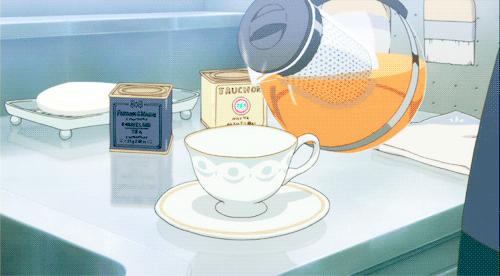
1. Snowflake method: Start with a one-sentence description of the novel. Then, develop this simple phrase into a paragraph. Your next step is to write a one-page summary based on the paragraph, you can write about characters, motivations, goals, plots, options, whatever you feel like. From this point on, you can either start your book or expand the one-page summary into four pages. And, at last, four pages into a brief description of known sequences of scenes. Your goal is to make the story more and more complex as you add information, much like a forming snowflake.

2. Chapter by chapter: List ten to twenty chapters, give each chapter a tittle and a brief description of what should happen. Then, break each chapter into three to five basic sequences of scenes. Give each sequence a title, a brief description and a short list of possibilities (possibilities of dialogues, scenarios, outcomes, moods, feelings… just play around with possibilities). From this point on, you can either create the scenes of sequences with a one-sentence description for each or jump straight to writing. Your goal is to shift from the big picture to a detail-oriented point of view.
3. Script: This might sound crazy, but, with this technique, you will write the screenplay of your story as if it’s a movie. No strings attached to creative writing, just plain actions and dialogues with basic information. Writing a script will take time, maybe months, but it will also enlighten your project like no other technique. Your goal is to create a cinematic view of your story. How to write a script here.
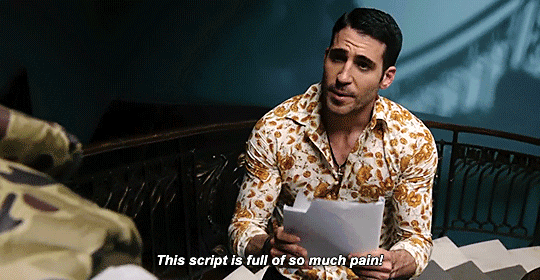
4. Free writing: No rules, no format, no step, just grab a pen or prepare your fingers to write down whatever idea that comes up. Think of possibilities, characters, places, quests, journeys, evolutions, symbolisms, fears, good moments, bad moments, clothing, appearances. Complete five to ten pages. Or even more. The more you write, the more you will unravel. You can even doodle, or paste images. Your mission is to explore freely.
5. Tag: This technique is ideal if you have just a vague idea of the story. Start by listing ten to fifteen tags related to the story. Under each tag, create possible plots. And, under each plot, create possible scenes. Grab a red felt pen and circle plots and scenes that sparkle your interest.
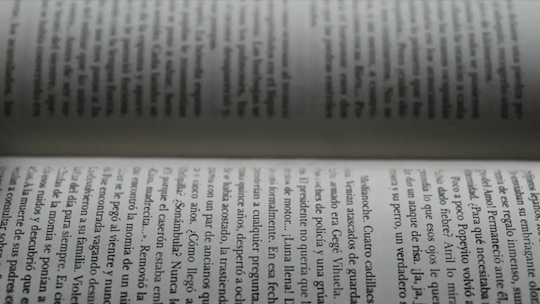
6. Eight-point arc: With this technique you will divide your story into eight stages. They are Stasis, Trigger, Quest, Surprise, Critical Choice, Climax, Reversal and Resolution. The Stasis is the every-day-life of your main character. Trigger is an event that will change the every-day-life of your character (for better or for worse). Quest is a period of your main characters trying to find a new balance, a new every-day-life (because we all love a good routine). Surprise will take your character away from their new found every-day-life. Critical Choice is a point of no return, a dilemma, your character will have to make the hardest decision out of two outcomes, both equally important. Climax is the critical choice put to practice. Reversal is the consequence of the climax, or how the characters evolved. Resolution is the return to a new (or old) every-day-life, a (maybe everlasting) balance.
7. Reverse: Write down a description of how your story ends, what happens to your characters and to those around them. Make it as detailed as possible. Then, move up to the climax, write a short scenario for the highest point of your story. From there, build all the way back to the beginning.
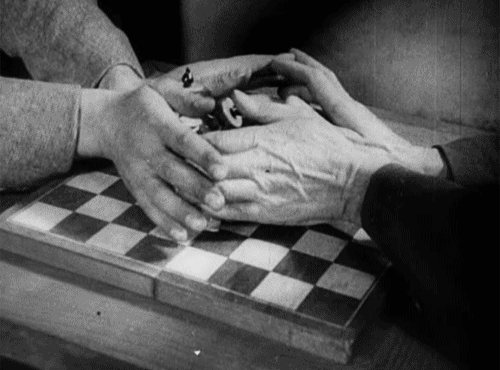
8. Zigzag: Draw a zigzag with as many up and downs as you want. Every up represents your main character moving closer to their goal. Every down represents your main character moving further from their goal. Fill in your zigzag with sequences that will take your character closer and farther from the goal.
9. Listing: The focus of this technique is exploring new ideas when your story feels empty, short or stagnated. You’ll, basically make lists. Make a long list of plot ideas. Make another list of places and settings. Make a list of elements. And a list of possible characters. Maybe a list of book titles. Or a list of interesting scenes. A list of bad things that could happen inside this universe. A list of good things. A list of symbolism. A list of visual inspiration. A list of absurd ideas you’ll probably never use. Then, gather all this material and circle the good items. Try to organize them into a timeline.
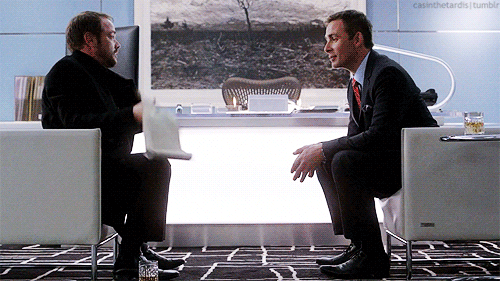
10. Character-driven: Create a character. Don’t worry about anything else. Just think of a character, their appearance and style. Give them a name. Give them a basic personality. Give them a backstory. Develop their personality based on the backstory. Now, give this character a story that mirrors their backstory (maybe a way to overcome the past, or to grow, or to revenge, or to restore). Based on your character’s personality, come up with a few scenes to drive their story from beginning to end. Now, do the same thing for the antagonist and secondary characters.
So, when is it time to stop outlining and start writing?
This is your call. Some writers need as many details as they can get, some need just an basic plot to use as a North. Just remember, an outline is not a strict format, you can and you will improvise along the way. The most important is being comfortable with your story, exploring new ideas, expanding old concepts and, maybe, changing your mind many times. There’s no right or wrong, just follow your intuition.
55K notes
·
View notes
